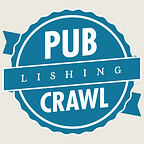This week JJ and Kelly talk reviews, publishing's necessary evil. Bottom line? Reviews are not for authors. Repeat: REVIEWS ARE NOT FOR AUTHORS.
Show Notes
Types of reviews
Trade publications (Kirkus, Publishers Weekly, Booklist, School Library Journal, etc.)
Consumer reviews
Uses for trade reviews
For collection building at schools and libraries
Pull quotes (choice phrases to put on marketing materials!)
Starred reviews
Starred reviews are merely a way for trade publications to note a particular title for a subjective meritorious reasons (I.e. the criteria changes from publication to publication and reviewer to reviewer)
Starred reviews from trades are not necessarily consensus reviews from the trade, even though editors do curate these publications
Generally industry professionals (professional reviewers, educators, librarians, etc.), but occasionally "influential" writers are asked to review titles
Reviews are generally assigned according to the reviewer's personal taste
Trade reviews are an early barometer of potential reception, but it's not set in stone
Consumer reviews
Consumer reviews are for readers NOT FOR THE AUTHOR
Even if it doesn't feel like it, the power imbalance between the author and the reader is in THE AUTHOR'S FAVOR
Do not respond to individual reviews; however, if there is a pattern (problematic representation, etc.), you may consider addressing it in future editions of a book or a statement on a website (tread lightly and with consideration here)
What We're Working On
Kelly is working on secret stuff
JJ is still writing her next book
What We're Reading
Tess of the Road by Rachel Hartman
Blood of a Thousand Stars by Rhoda Belleza
Eliza and Her Monsters by Francesca Zappia
The Belles by Dhonielle Clayton
Off Menu Recommendations
Queer Eye reboot
Black Panther
Cycling (JJ has become that basic person who goes to a cycle bar)
What You're Asking
If you're on sub and the editor leaves and they forward it on to another editor, will it get lost in the shuffle? —Alicia
No more than usual...? The process will vary from house to house, but ultimately, it still comes down to whether or not the editor connects with it and is able to get their acquisitions board on board.
I'm working on a query letter and synopsis for a historical adult fantasy. It's written in the POV of three characters, but I've written the query and synopsis from only one character. She's certainly the main character, but I feel I'm shortchanging the others or misrepresenting my work. How do handle? —Angie
If your story is told in three different POVs intertwined in one major narrative, then I would pick the POV with the most active role in it (e.g. in the The Lord of the Rings, you would write a query focusing on Frodo and Sam's narrative). If it's a case where three different POVs are narrating the same set of events in a Rashomon sort of way, then perhaps mention that.
That’s all for this week! Next week we will be talking about the High Concept Pitch and Why It Works. So as always if you have any questions, feel free to leave them in the comments below, send us an ask on Tumblr, or tweet using the hashtag #askpubcrawl!
Also! We are doing A QUERY CRITIQUE for the end of March, so send them to publishingcrawl@gmail.com with the subject line QUERY CRITIQUE.




